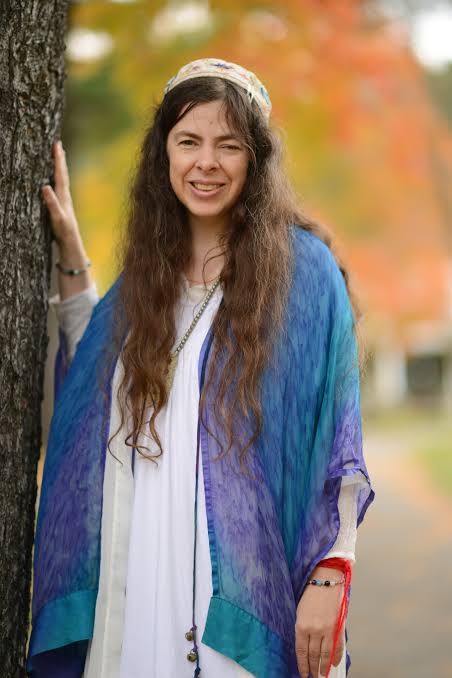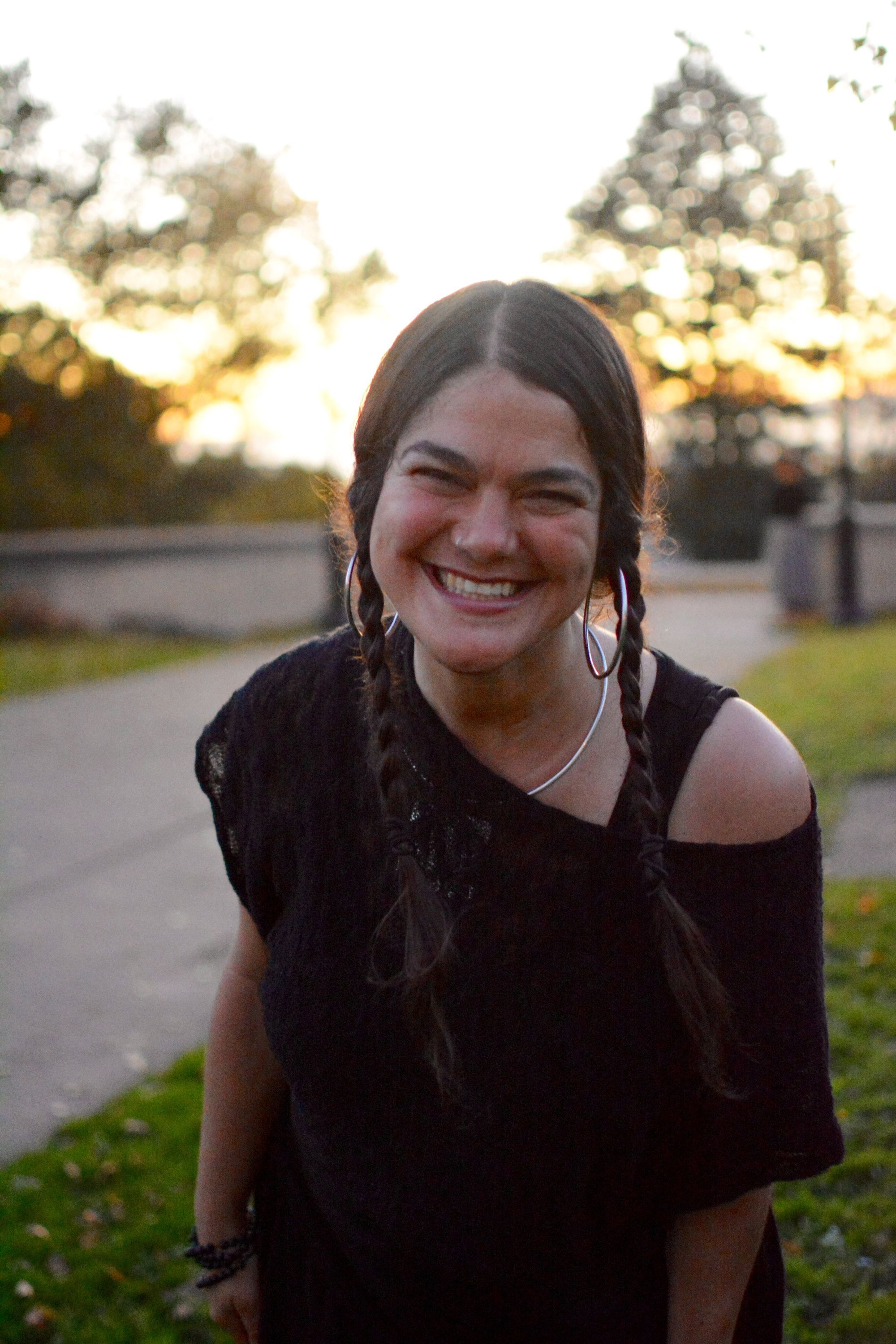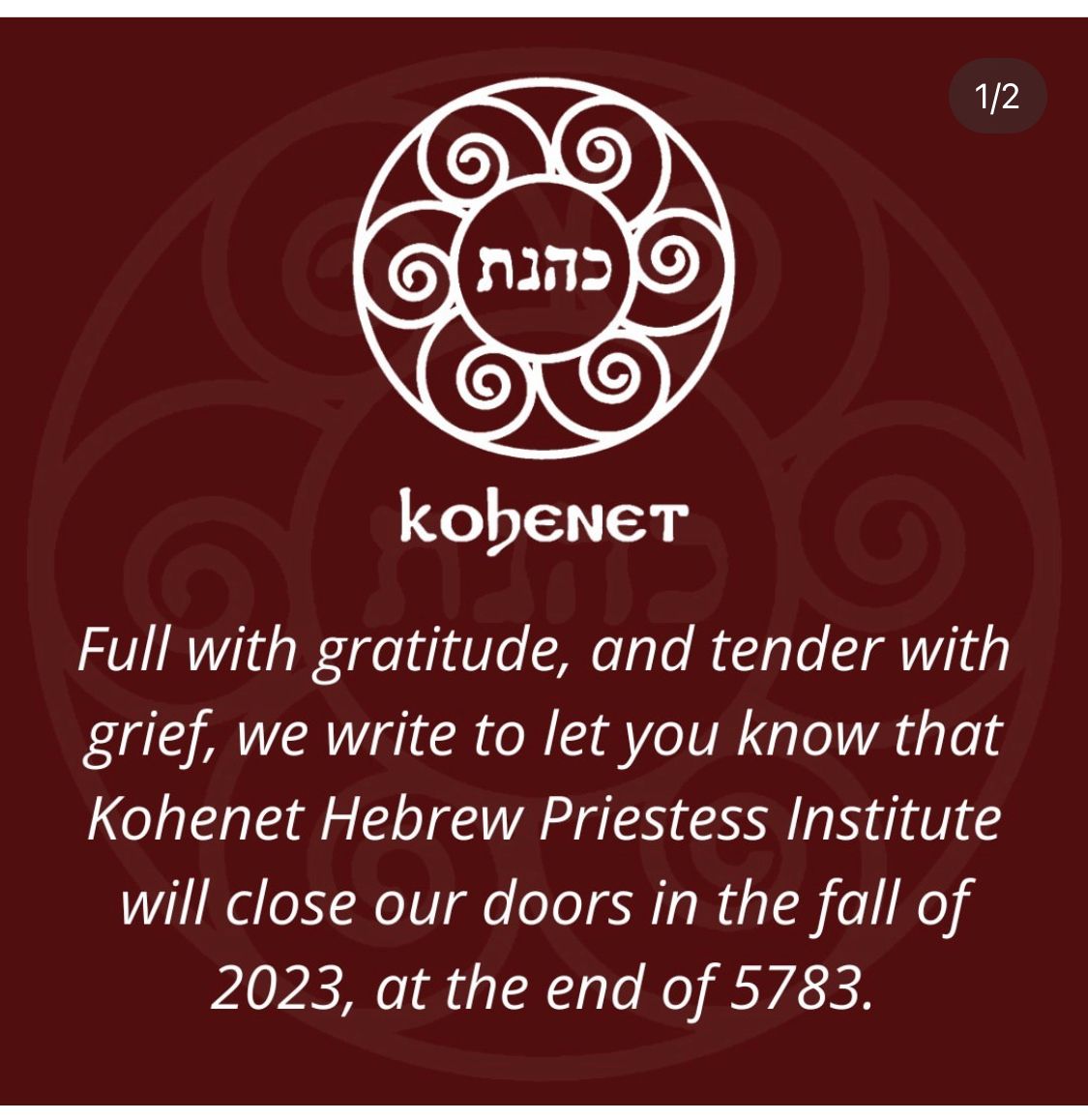Shabbat Gathering: About Kohenet and Jewish priestesses

Dear Chevra, as is our custom, we will gather tonight at 5.45p ct to welcome Shabbat. These are the coordinates:
Zoom
Meeting ID: 963 5113 1550
Password: 1989
Phone: +1 312 626 6799
(To unsubscribe from the newsletter, click the link at the very bottom of this email.)
Here we go.
On May 17-19 of 2024 Shaarei Shamayim will welcome the founders of Kohenet Hebrew Priestess Institute to lead our synagogue’s Shabbaton. As we get much closer to the date, I intend to write a newsletter specifically about the Shabbaton, but for now, I want to share some of the things I’ve learned about this group, which has been very influential for some members of our synagogue. Unfortunately, in July I got the news that Kohenet is closing at the end of 5783, this fall. I don’t know why the group closing. It’s a loss for our community and the Jewish community in America.
What’s “Kohenet” mean?
The first thing to know is what the word Kohenet means. You’re probably already familiar with the word Kohen or priest. Descended from Aaron, Kohanim served as the priests in the ancient temples of Jerusalem. The modern name, Cohen, comes from Kohen. Even today, people named Cohen have special functions in synagogues and live under certain restrictions such as being involved in funerals and other death rituals. Kohenet is the feminine version of Kohen so the word literally means priestess.
How Kohenet was founded.
Kohenet was founded on November 23, 2005 by Jill Hammer and Holly Taya Shere (now known as Taya Mâ).
Tablet magazine in August 32010 describes the founding like this:
The idea of becoming a priestess first came to Hammer in 2001, just before she was ordained (as a Conservative rabbi at the Jewish Theological Seminary). As a rabbinical student, her “fascination with the wild side of feminine deity stayed underground,” she wrote in the essay collection New Jewish Feminism. But she was enthralled by “kabbalists in their secret circles whispering the name of Immah Ilaah, the Divine Mother” and loved engaging in new moon rituals, when she would pray to Shekhinah. She was about to become a rabbi, she says, but she felt like a priestess.
Then, in late 2005, Jay Michaelson (writer, journalist, professor, and rabbi) introduced Hammer to Shere who had studied priestesses in Brazil as a graduate student and was also interested in training Jewish women “to priestess.” Disillusioned by what she calls “the patriarchy, hierarchy, and the disembodiment” of mainstream Jewish practice, Shere, like Hammer, wanted to build a new kind of Judaism. “It was a thunderbolt when we met,” says Hammer. “Within an hour of speaking on the phone we decided to create this program and to call it Kohenet.” Kohenet held its first session in 2006.
About the head priestesses and founders Hammer and Mâ.

Hammer graduated from Brandeis University in 1991, earned a PhD in social psychology from the University of Connecticut, and received rabbinic ordination from the Jewish Theological Seminary in 2001. Soon after ordination, she became the director of spiritual education at the trans-denominational Academy for Jewish Religion in Riverdale, New York. Among her published works are Sisters at Sinai: New Tales of Biblical Women (2001), The Jewish Book of Days: A Companion for All Seasons (2006) (This is the book I turn to so often for the reflection during our Friday night Shabbat Gatherings), and Siddur HaKohanot: A Hebrew Priestess Prayerbook (2010). Hammer also wrote an influential book, Return to the Place: The Magic, Meditation, and Mystery of Sefer Yetzirah.

Mâ serves as assistant professor of the Practice of Organic Multireligious Ritual at Starr-King School for the Ministry, a progressive Unitarian seminary in Berkeley, California. At the seminary, she trains emergent clergy across faith traditions in transformative ritual craft, multireligiosity, ancestral practice, and trauma-aware spiritual leadership.
The roots of Kohenet.
Kohenet draws from the evolution of modern Judaism such as the creation of Renewal Judaism. (Rabbi Zalman Schachter-Shalomi, the father of Renewal Judaism, gave the Kohenet his blessing.) Kohenet is founded on all religion’s increasing focus on the role of women and rising interest in drawing from and creating earth-based ritual.
From the Jewish Woman’s Archive, August 14, 2006:
…Kohenet advocates and nurtures embodied Jewish spiritual leadership, creativity, and community from an earth-honoring, feminist perspective. Drawing on midrashic and mystical teachings from the Jewish tradition, Near Eastern myth, and women’s wisdom across the generations, Kohenet reclaims and innovates uniquely feminine models of Jewish spiritual leadership.

How it worked.
Before it disbanded, ordination required the completion of a three-year training program. There was an initial training period that consisted of four retreats focused on 13 priestess paths: Maiden, Mother, Matriarch, Midwife, Wise Woman, Mourning Woman, Prophetess, Shrinekeeper, Shamaness, Seeker, Lover, Fool, and Weaver.
Later on in their training, students focused on “lifecycle ritual skills,” such as birth and naming ceremonies, coming-of-age and wedding rituals, and funeral and death rites. Students learned how to make and use amulets, or lead “embodied Torah readings” which included dancing, re-enactments of parsha, or reading the Torah scroll outdoors.
The training concluded with an initiation ceremony where students received the title of tzovah or keeper of sacred space and time. Students who chose an additional year of advanced ritual and lifecycle training worked toward smicha (ordination) as kohanot, Hebrew priestesses.
Becca’s Krantz’s experience.
One of our fellow congregants, Becca Krantz, attended a course led by members of Kohenet at the 2018 Renewal Kallah, the bi-annual gathering of the Alliance for Jewish Renewal. She had a terrifically positive experience. This is what she has to say about it:
I found their blend of deep scholarship, eco-feminist interpretation, creativity, and embodied spiritual practices intriguing, and when I participated in the Shabbat service they led … I felt like I'd come home.
I have taken two online classes with them since then, one with Rabbi Jill Hammer, an introduction to her book on Sefer Yetzirah, and one with Taya Mâ on Jewish Ancestral Healing. I have found the ancestral work to be deeply healing and supportive.

Moving Judaism forward.
As I wrote above, Kohenet is in the process of closing down and this is a pity, but I’m glad Kohenet’s closing isn’t going to affect Shaarei Shamayim’s Shabbaton next spring. One thing I hear a lot of these days is that Judaism is at an important inflection point in our long history. I hear this from Svara, and I hear this from Michael Strassfeld (one of the leaders of the modern havurah movement and the author of Judaism Disrupted), and I hear this from many others. Today, this moment in our history, is being compared to the fall of the second Temple and the rise of rabbinic Judaism. (That makes it a really big deal.) Kohenet was a harbinger of big change in Judaism and it has educated hundreds and hundreds of people who are leaders in their communities and will carry Kohenet’s message forward as is happening at Shaarei Shamayim. And for that we should be grateful.
And may it be for all of us a blessing.
See you tonight!
Gut Shabbes!
All my love,
brian.
PS
Regarding being a Jew-by-choice:

The Forward and a couple of other sites I frequently mention here have an ongoing informal series that's usual title, "The secret Jewish history of..." As were are near the observance of Jerry Garcia's death, you just knew there had to be a link…

-30-
